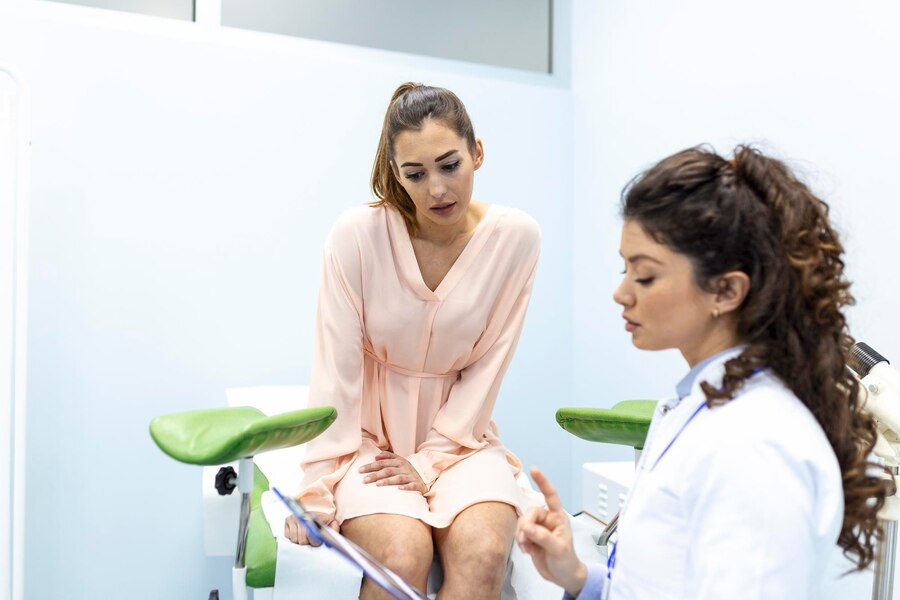Abdominal pain is a common symptom that can arise from various conditions, ranging from minor digestive issues to serious medical emergencies. It can present as mild discomfort, sharp stabbing pain, cramping, or persistent aches. While some cases of abdominal pain can be managed with home remedies, others require urgent medical attention.
Urgent care centers provide quick and effective treatment for abdominal pain, helping patients receive timely diagnosis and appropriate medical interventions. These clinics offer a convenient alternative to emergency rooms (ERs) for non-life-threatening conditions, ensuring that individuals get the care they need without long wait times.
This article explores when to visit urgent care for abdominal pain, common causes, diagnostic tests, treatment options, and frequently asked questions to help you make informed healthcare decisions.

When Should You Visit Urgent Care for Abdominal Pain?
Not all abdominal pain requires emergency room care, but moderate to severe pain that affects daily life should be evaluated by a doctor. Urgent care centers can assess and treat a variety of abdominal issues, especially when symptoms are concerning but not immediately life-threatening.
Signs You Need Urgent Care for Abdominal Pain
Visit an urgent care clinic if you experience:
- Persistent or worsening abdominal pain lasting more than a few hours.
- Severe bloating or cramping not relieved by over-the-counter medications.
- Nausea, vomiting, or diarrhea lasting more than 24 hours.
- Pain accompanied by fever (suggesting infection).
- Pain that spreads to the back or chest.
- Mild to moderate pain after eating (may indicate food intolerance, ulcers, or gallbladder issues).
- Pain with difficulty urinating (possible urinary tract infection or kidney stones).
When to Visit the Emergency Room Instead of Urgent Care
Some abdominal pain symptoms require emergency medical attention rather than an urgent care visit. Go to the ER if you experience:
- Severe, unbearable abdominal pain.
- Sudden, sharp pain that feels like tearing (may indicate a ruptured organ or aneurysm).
- Persistent vomiting or vomiting blood.
- Bloody stools or black, tarry stools (potential sign of gastrointestinal bleeding).
- Difficulty breathing along with abdominal pain.
- Pain after a recent surgery or injury.
- Jaundice (yellowing of skin or eyes), which may indicate liver disease.
If you are pregnant and experiencing severe abdominal pain, visit the ER immediately to rule out complications such as ectopic pregnancy or miscarriage.
Common Causes of Abdominal Pain Treated at Urgent Care
Urgent care clinics handle a wide range of non-life-threatening abdominal pain causes. Some of the most common conditions include:
Digestive System Disorders
- Gastroenteritis (Stomach Flu) – Viral or bacterial infection causing nausea, vomiting, diarrhea, and stomach cramps.
- Indigestion (Dyspepsia) – A burning sensation or bloating caused by acid reflux, spicy foods, or overeating.
- Constipation – Difficulty passing stool due to dehydration, poor diet, or lack of fiber.
- Food Poisoning – Caused by contaminated food, leading to diarrhea, nausea, and cramping.
Infections and Inflammatory Conditions
- Appendicitis (Early Stages) – Pain that starts near the belly button and moves to the lower right abdomen.
- Diverticulitis – Inflammation of pouches in the intestine, causing pain and bloating.
- Urinary Tract Infections (UTIs) – Can cause lower abdominal pain, frequent urination, and burning sensations.
Gallbladder and Liver Issues
- Gallstones or Gallbladder Inflammation (Cholecystitis) – Pain after eating fatty foods, especially in the upper right abdomen.
- Hepatitis (Early Symptoms) – Viral liver infections causing discomfort in the upper right abdomen.
Reproductive System Conditions
- Menstrual Cramps (Dysmenorrhea) – Severe pain during menstruation.
- Ovarian Cysts – Fluid-filled sacs in the ovaries causing lower abdominal discomfort.
- Pelvic Inflammatory Disease (PID) – Infection of female reproductive organs, leading to pelvic pain.
Diagnosis and Tests Performed at Urgent Care for Abdominal Pain
To determine the cause of abdominal pain, urgent care providers may perform the following tests:
Physical Examination
Doctors will check for:
- Tenderness or swelling in different areas of the abdomen.
- Pain when pressing on specific spots (e.g., appendix area).
- Abnormal bowel sounds or signs of bloating.
Diagnostic Tests
- Urinalysis – Checks for infections, kidney issues, or blood in the urine.
- Blood Tests – Evaluates for infection, inflammation, or organ dysfunction.
- Stool Tests – Identifies infections or gastrointestinal bleeding.
- Ultrasound – Detects gallstones, cysts, or reproductive organ issues.
- X-rays or CT Scans – Helps identify blockages, appendicitis, or internal bleeding.
These tests help doctors confirm a diagnosis and recommend appropriate treatment.
Treatment Options for Abdominal Pain at Urgent Care

After diagnosing the cause of abdominal pain, urgent care providers offer treatment based on the underlying condition.
Medications
- Antibiotics – Prescribed for bacterial infections like UTIs or diverticulitis.
- Pain Relievers – NSAIDs or acetaminophen for mild to moderate pain.
- Antacids or Acid Reducers – For heartburn, indigestion, or GERD-related pain.
- Antiemetics (Anti-Nausea Drugs) – Help relieve vomiting and nausea.
- Laxatives or Fiber Supplements – Used for constipation relief.
Hydration Therapy
For patients with dehydration due to vomiting or diarrhea, urgent care may provide IV fluids to restore electrolyte balance.
Referral to Specialists or ER
If urgent care determines that the condition requires advanced care, they may:
- Refer the patient to a gastroenterologist for chronic digestive issues.
- Advise an immediate ER visit for severe or worsening symptoms.
- Recommend surgical consultation for gallstones or appendicitis.
Frequently Asked Questions (FAQ)
1. Can urgent care treat severe abdominal pain?
Urgent care can diagnose and treat mild to moderate abdominal pain, but severe pain or life-threatening symptoms require emergency care.
2. How do I know if my abdominal pain is serious?
Seek urgent care if pain persists for more than 24 hours, worsens over time, or is accompanied by fever, nausea, or difficulty urinating.
3. What can I do at home before visiting urgent care?
Drink plenty of water, avoid solid foods if nauseous, take mild pain relievers if needed, and avoid self-medicating with antibiotics.
4. Will I need an ultrasound for stomach pain?
It depends on the suspected cause. Gallbladder, ovarian, and kidney issues often require an ultrasound for diagnosis.
5. How much does urgent care for abdominal pain cost?
Costs vary, but most visits range from $100–$250 before insurance. Additional tests may increase the cost.
Conclusion
Abdominal pain can stem from various causes, ranging from minor digestive issues to more serious conditions. Urgent care centers provide timely evaluations, accurate diagnoses, and effective treatments for non-life-threatening abdominal pain.
If you experience persistent, severe, or unusual abdominal discomfort, visit our urgent care clinic for professional medical attention (469) 496-2454 or visit us https://www.tscoaklawn.com/
